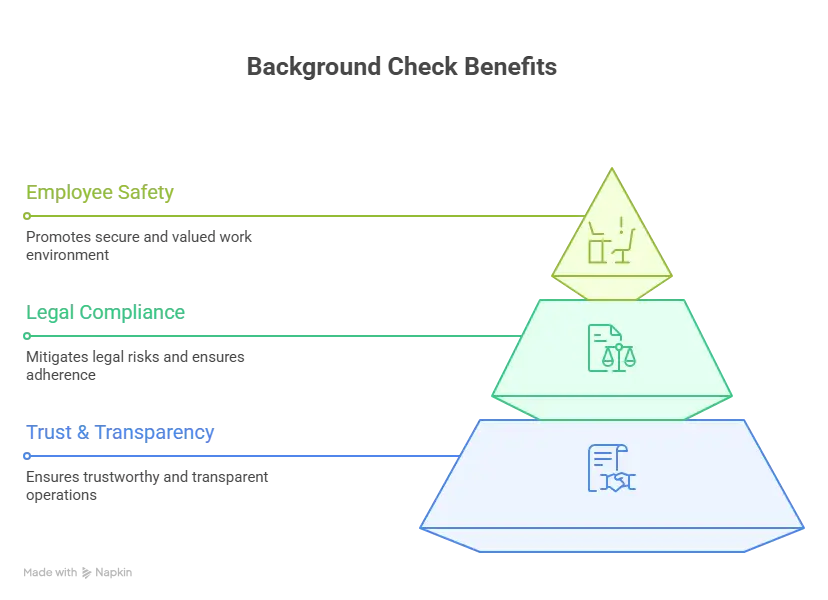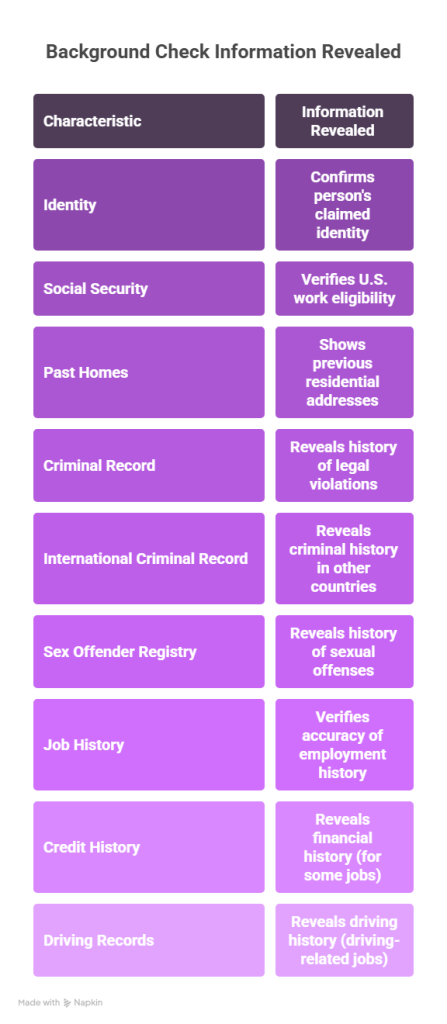Background checks are crucial in our interconnected world. These checks are vital for businesses, landlords, and various institutions to verify an individual's history and credentials. Let's delve into the comprehensive world of background checks, their significance, and their intricate processes. In the course of bringing on your next employee, hiring a contractor, or leasing property, the choices you make are ultimately predicated on trust; this trust begins with the procurement of information. A highly detailed background check works to protect your organization while also promoting openness and trust for everyone involved. When applied correctly, the emphasis goes beyond simply finding red flags; it includes the objective of making better, more informed choices based on integrity.
What is a Background Check?
A background check is a way to examine someone's history. It checks criminal records, credit history, and job and school history. Employers frequently use it to ensure that a job candidate is a suitable match, but anyone can use it to learn more about someone.
EXPERT INSIGHT: As a practitioner of HR, I've noticed that background checks build security and credibility. Each of the backgrounds has a history that needs caution and perception. I have seen situations where a report not only revealed one’s past but also offered a chance for learning, accountability, and a second chance. In our increasingly dynamic world, taking time to vet thoroughly shows our respect for people, not just their paperwork. It goes beyond compliance; it is the manner in which we decide to lead with integrity. - Charm Paz, CHRP
Why are They Essential?
These checks aim to ensure safety and trust, in any scenario where verification is necessary.
- Trust and Transparency: Establishing trust is paramount, especially in contract-based roles. Background checks ensure that all parties involved can operate in a transparent and trustworthy environment.
- Legal Compliance: Background checks help mitigate potential legal complications, such as negligent hiring or wrongful termination lawsuits. By adhering to a structured screening process, businesses can easily navigate the intricate web of legal requirements.
- Employee Safety: A thorough background check process promotes open communication between employers and potential hires. This transparency ensures that all employees feel secure and valued in their work environment.

What Information is Revealed in a Background Check?
The specifics of a background check can vary based on the type of check conducted and the requirements set by local, state, and federal laws. Commonly, employers might request:
- Identity: It checks if the person is who they say they are.
- Social Security: It ensures that a person can work in the U.S.
- Past Homes: It tells you where the person has lived before.
- Criminal Record: It shows if the person has a history of breaking the law.
- International Criminal Record: For jobs that need it, it checks if the person has a criminal record in other countries.
- Sex Offender Registry: It tells you if the person has a history of sexual offenses.
- Job History: It checks if the person's job history is accurate.
- Credit History: For some jobs, it looks at the person's financial history.
- Driving Records: When applying for a job that involves driving, employers will check the candidate's driving history. This helps ensure the candidate is a safe driver and can be trusted behind the wheel.

How is a Background Check Conducted?
The process of conducting a background check is intricate and involves several steps:
- Request Initiation: The employer or requesting party initiates the background check.
- Candidate Authorization: The individual undergoing the check receives a notification, usually via email, prompting them to authorize the check and provide necessary personal information.
- Data Collection: The candidate provides their personally identifiable information (PII) and electronically signs the required consent forms.
- Information Processing: The background check agency, such as GCheck, processes the provided data and conducts the necessary screenings.
- Report Compilation: A comprehensive report is generated and made available for review once the screenings are complete.
- Decision Making: Based on the report, the employer or requesting party evaluates the candidate's suitability for the role or position.
Conclusion
Background checks are an indispensable tool in today's world, ensuring safety, trust, and compliance. By understanding the intricacies of these checks, businesses and individuals alike can make informed decisions, fostering a transparent and secure environment for all involved.
Disclaimer: This article is for informational purposes only and does not constitute legal or professional advice. Always consult with experts regarding specific requirements and regulations.

GCheck Editorial Team
Meet the GCheck Editorial Team, your trusted source for insightful and up-to-date information in the world of employment background checks. Committed to delivering the latest trends, best practices, and industry insights, our team is dedicated to keeping you informed.
With a passion for ensuring accuracy, compliance, and efficiency in background screening, we are your go-to experts in the field. Stay tuned for our comprehensive articles, guides, and analysis, designed to empower businesses and individuals with the knowledge they need to make informed decisions.
At GCheck, we're here to guide you through the complexities of background checks, every step of the way.






